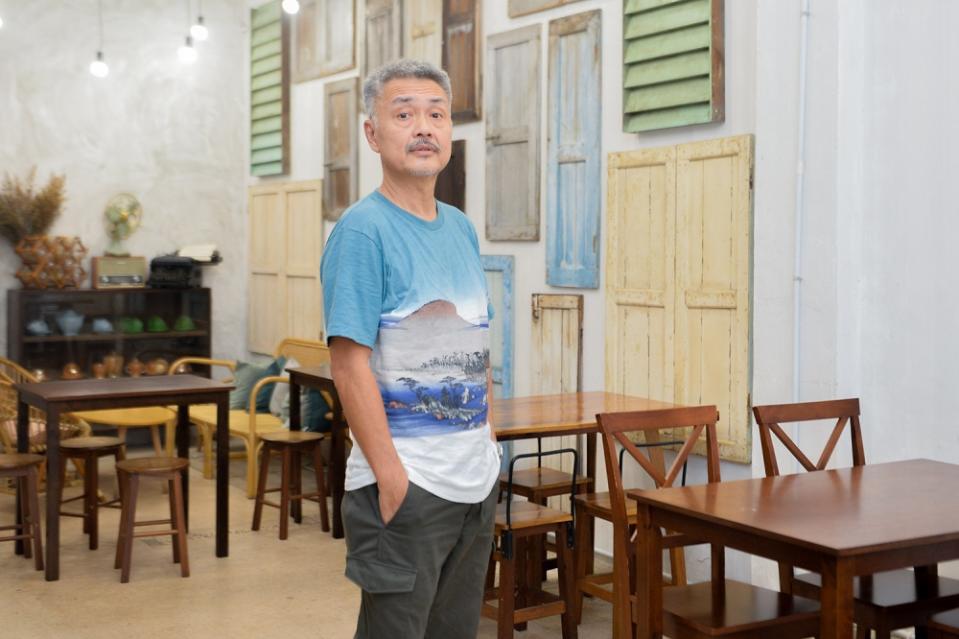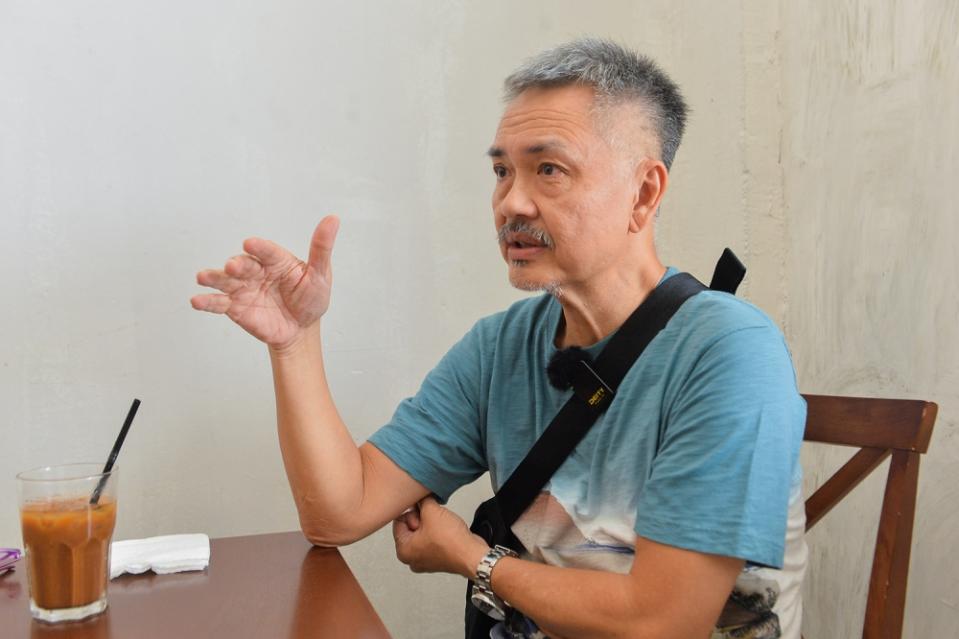Channel grants, funds for Malaysian film and TV industry towards educating practitioners, suggests actor Chew Kin Wah (VIDEO)

KUALA LUMPUR, Oct 26 — Having spent more than 30 years in the film industry, Malaysian actor Chew Kin Wah is no stranger to Malaysian audiences.
The 57-year-old’s resume includes appearances in everything from telefilms to box-office movies including 1998 hit series Kopitiam and 2014 Anugerah Skrin’s Best Drama Matahari Terbit Lagi, which also won him Best Male Actor in a Drama.
He is also a known name in the Indonesian film and TV industry after his appearance in the 2016 box-office film Cek Toko Sebelah that earned him Best Supporting Actor at Indonesia’s Festival Filem Tempo in 2017, which led him to more opportunities there.
While the offers keep coming in Indonesia, it has led to some local production houses assuming that Chew had relocated to Indonesia.
“I still have my Malaysian identity card, I still have my Malaysian driving licence and I still pay my taxes here.
“So I really don’t know why they can’t get in touch with me here. And it’s not just me, some local actors working in Indonesia also face the same thing. It’s weird-lah,” Chew said.
Differences between the Malaysian and Indonesia TV and film industry

Chew made a name for himself in Indonesia after appearing in the 2016 box office film 'Cek Toko Sebelah'. — Picture by Miera Zulyana
Having spent quite a bit of time in the Indonesian industry, one of the things Chew noticed is how Indonesian production houses go the extra mile for their talents, especially in terms of flexibility.
Chew said that production houses there were willing to reschedule their production schedules according to his availability, which is something he hasn’t experienced with local production houses.
“If they want you, then they will do things to make sure you are at the set. Unlike here, where if I tell them I can’t make it to these dates and so on, they will just reply with ‘Okay thank you uncle’.
“Whereas the people there will say not to worry, we will handle it.
“That is the number one difference for me anyway.”
Apart from a larger work force there, Chew pointed out that Indonesian production houses spend more money and resources on their pre-production to ensure a smoother shooting process.
He said that everyone, from the production crew to the actors, is given a booklet or a file containing the storyboard with details on camera angles and scenes schedules.
Here, some local production houses have the habit of squeezing everything into a tight schedule, resulting in extensive working hours for crews and actors.
“Another main difference between (our industry) and Indonesian industry is that, and I’m actually ashamed of this, because all of them speak one language.
“Where we have three film industries here, the Chinese film industry, the Indian film industry and the Malay film industry, which are all separated,” he said.
He added that the Malaysian film industry could benefit more if the whole industry stood as one.

Chew feels that grants and funds should be channelled to provide educational courses for filmmaking crews and scriptwriters in order for the industry to move forward. — Picture by Miera Zulyana
Grants and Working Conditions
One other thing that sets the Malaysian film industry apart from Indonesia is the availability of grants and funds for films, TV series and digital content provided by the government, especially via the Digital Content Fund (DKD).
Chew, who welcomes the idea of helping the film industry however, feels that the grants and funds should be channelled to provide educational courses for filmmaking crews and scriptwriters in order for the industry to move improve and move forward.
“We should have grants for filmmakers to go for education.
“Making the director of photography go for courses, making the scriptwriters go for a retreat to learn and write on what’s happening,” he said.
“Or go to film festivals for them to watch things and learn and not just by giving grants to make movies.”
Despite everything, Chew is grateful as an actor to still have work, especially after the Covid-19 pandemic which affected many.
He however admitted that he’s more particular in accepting jobs these days as he prefers not to work more than 12 hours a day.
“It’s bad for my health, it’s bad for the health of the crew and it’s bad for the health of everyone.
“We shouldn’t work for more than 12 hours. We have families, children, we have parents and people to go back to.
“I’m very grateful to have work but it has to have certain standards,” he said.
Chew is currently having a busy year with shoots for both local and international production houses.
Amongst his upcoming films includes the Tunku Mona Riza’s Rain Town which will be hitting theatres in February next year as well as Bront Palarae’s Dawn Raid: The Hands That Rattled the Queen which is set to begin principal photography at the end of this year.
Chew will also be making an appearance in the prequel to Netflix’s The Night Comes From Us titled The Shadow Strays with director Timo Tjahjanto.



